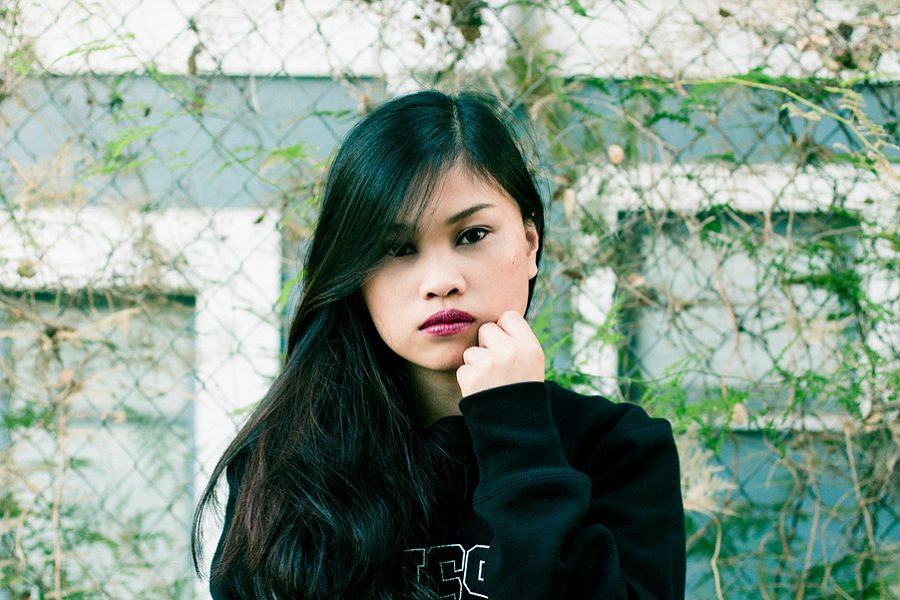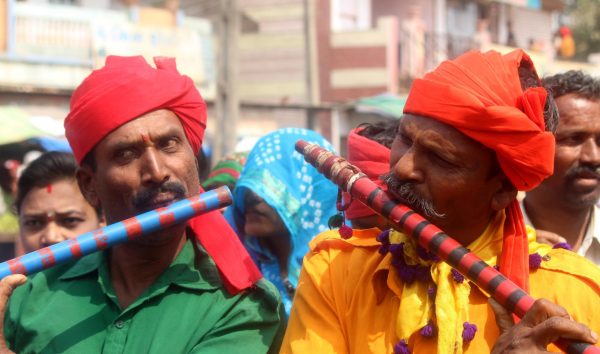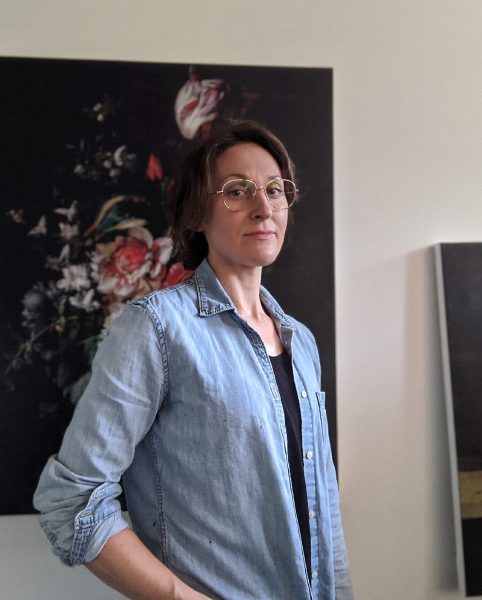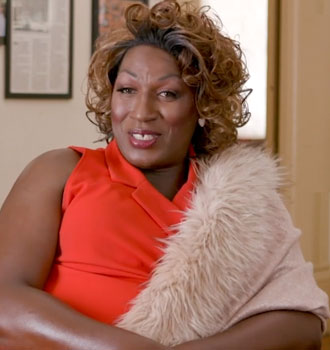Ruby Ibarra, Rapper
Ruby Ibarra, rapper.
Ruby Ibarra is a rapper based in the San Francisco Bay Area. Born in the Philippines, Ibarra immigrated to the United States when she was 4 years old in the 1990s. Growing up, she was introduced to hip hop by listening to rappers like Tupac, Eminem, and Wu Tang Clan. Ibarra started rapping as a teenager, and is known for her sharp lyricism and rhythmic flows. In 2010, she started releasing YouTube videos, which have since been featured in XXL Magazine and Worldstar Hip Hop. Her debut mixtape, Lost in Translation, was released in December 2012. Her latest album, Circa91, came out last fall. Last Saturday, Ibarra returned to campus for the first time since 2013, performing at the Cat in the Cream as part of the 20th biannual Midwest Asian American Student Conference.
This interview has been edited for length and clarity.
How did you get into rap?
Many years ago, I was a little kid. It was the time my family and I moved to the U.S. from the Philippines in the ’90s, and the only thing my mom had packed in her suitcase was this cassette tape, and it was by an artist named Francis Magalona, who’s pretty much the pioneer of hip hop in the Philippines. Since that was pretty much the only music my mom brought over, we would listen to that every day. That’d be what my mom would play. I just remember being a little kid, and I would listen to it so much, and I was able to recite the lyrics verbatim. I just naturally gravitated toward it because of the rhythmic nature — you know, the flows and the way that the structure of the lyrics are set up. It just caught my ear, and I was just in awe of how an artist could basically use their voice as an instrument in music. I think looking back at it now and realizing that [they were] the first artists that introduced me to the genre, I feel like I’ve come full circle with it, in the sense that that artist talked about sociopolitical issues that were going on in the Philippines at the time. That’s something I feel like is reflected in my work now and that I like to bring to light in a lot of my lyrics.
How are rap and hip hop similar or different in the Philippines than in the U.S.?
I’ve fortunately been able to go back once or twice a year since 2012. I’ve been fortunate enough to share those spaces with the hip hop community there, and it’s kind of funny because back in 2014, I feel like they were still kind of in their golden era of hip hop at the moment. It was very boom-bop and underground — what people would consider really an old-school style of rap. I went back again last December, and I feel like they’ve caught up to what is popular here in the U.S. now. A lot of them are listening to trap and other popular artists out [there,] so I think it’s reflective of what’s popular out here. Battle rap is definitely, I think, what introduces a lot of people to hip hop who don’t know about it yet, but I also notice that the genre itself is less stigmatized now. I know back then it was sort of associated with drug use, or it’s kind of looked down upon — the genre —but now it’s finally, thankfully, becoming more of a respected work there.
What’s your creative process like when you write your music?
Very random. Most of the time, I think that I write my lyrics when I’m in the shower. I don’t know if that’s very artist-like to say. I’ll just randomly come up with a line in my head when I’m in the shower, and I’ll keep saying it over and over, then write it down on my phone so I don’t forget. Or I could be driving to work, and a line or two will pop up in my head. But with [my] album, specifically, that was something I felt like I really needed to sit down and focus on it — not approach it randomly, but really more focused with the intent to create a project that read like a book from start to finish.
Your music is simultaneously personal to your life, from what I’ve been able to tell, and it’s also really relevant to the bigger societal problems that Filipinos and other people of color face. Do you consider your music more personal or political?
I consider it both. To be honest, when I was writing the album, I just wanted to introduce people to the person [who’s] behind the microphone. I thought that if I make an album that is personal and honest, that’s going to be something that people resonate with. That’s why growing up, I fell in love with albums like Miseducation of Lauryn Hill or even more contemporary ones like Kendrick Lamar’s Good Kid, M.A.A.D City. Those are the albums that I gravitate toward, because you kind of get a glimpse of their life and what their upbringing is like and what’s going on in their minds. That’s what I wanted to reflect in my lyrics, and the response has just been incredible — I didn’t realize that so many people would resonate with it. Even in skits alone, I’ve had people, even outside of the Filipino-American community — Mexican Americans, Indian Americans — say that it’s very similar to their first-generation immigrant experience. I think that often, there’s kind of a stigma that goes with political hip hop, and people are kind of afraid to label their music as such, but I think we’re at a time now — especially with the current social-political climate — where we need music that is honest, and we need music that is political so that we can have these conversations that people don’t bring to mainstream or stories that are silenced or untold.
Your music also combines English and Tagalog, which I really appreciate. Do you consider diasporic themes or inspiration while you rap?
Every time I insert a Tagalog line or Visayan — that’s my family’s dialect — it’s always been 100 percent my intent to incorporate it. First of all, just the sound of Tagalog — a lot of it has a lot of consonants, and it’s very percussive. I don’t know if I’ll do it later on tonight [at the show], but if you hear Tagalog even in a rap form, it almost sounds like someone is beat boxing. That nature of it and the technical aspect of it — I definitely wanted to include that in the album.
But I think it also added to the whole immigration story — the underlying immigration story of the project as well. I think just being Filipino American, growing up, I often recall wondering why a lot of my Filipino-American friends didn’t know how to speak the language, whereas a lot of my Chinese-American or Mexican-American friends knew how to speak their parents’ native tongue. Then I remember questioning and asking my mom, how come — even my sister, we’re first-generation immigrants, but my sister is just three years younger than me — she doesn’t know how to speak or understand it at all. Those are conversations and questions that I’ve had with my family or my friends and wondering why there seems to be a disconnect when it comes to language for Filipino Americans specifically. I definitely wanted to incorporate that aspect. I think language, for any culture, is a large part of the culture, a large part of identity. I think, overall, me incorporating Tagalog into the lyrics is reflective of me keeping that part of my identity.
Do you face any challenges as a Filipina in the hip hop community?
I wouldn’t call it a challenge, because I acknowledge the fact that me, not looking like the typical rapper — you know, me, I’m female, I’m Filipina — it instantly grabs people’s attention. It allows me, I think, to have a platform that other artists don’t have, speaking to Black artists in hip hop that people wouldn’t instantly find out-of-the-box, I guess, for lack of a better word. I acknowledge that it’s given me a platform, which is a sense of privilege too, but as a Filipina right now, as an artist, I would like to expand my audience, and I would like to be able to hopefully join spaces and shows that don’t necessarily have a core Asian-American, Filipino-American audience. But hopefully with my future projects and songs, I’d be able to create music that have more universal themes that more people can resonate with.
Your rap also touches upon your family a lot. How does your family inspire your work?
My family greatly inspires my work. [In] the album itself, I talk a lot about my mom. It’s her voice that’s in the skits. What I wanted to do with this album outside of me, speaking my story, is to speak my parents’ stories. I know that although my parents and I were both first-generation immigrants, … the experience for them was completely different from mine. They came here to the U.S. as adults already, so they had to face not only cultural barriers, but language barriers as well. Even things like finding a job that correlated with the education that they received in the Philippines, I know for a lot of immigrants, you kind of have to downgrade and find jobs out here that doesn’t really put their degree to use. I wanted to share those experiences and those stories that I feel like — especially my parents, who don’t have that platform or that voice — I feel that in this country, I wanted to make sure that that was at the forefront of the music.
My family’s been a large inspiration for me, and my mom has been completely supportive. She’s the type of mom [who] listens to my music without me even bringing it to her attention. Back when I first started doing music, when I was in high school, she would drop me off to school, and she’d turn on her car stereo, and it’s my song. I’m like, “How did you even know how to download my MP3? Who taught you this?” Even now, when I post videos online, and it’s posted on blogs, it’s my mom that sits there and reads through every single comment. She’s like a keyboard warrior; she responds to anything that she deems negative and defends me. I’ve been fortunate enough that my family’s been supportive, even though I haven’t taken the traditional or the common occupation route, in terms of my passion.
How do you think colonialism plays into Filipino identity and also your music?
Colonialism definitely plays a large part in Filipino identity. Even today in 2018, just when I went back home to the Philippines in December, I still see aisles and aisles of skin-whitening soaps and skin-whitening lotions. Even in the media, we have actors and actresses [who] don’t represent, physically, the core population in the Philippines, so I think colorism is still a very big thing in the Philippines and in Filipino Americans. I think it’s important that we continue to still have these conversations. Luckily, we have artists like Bambu and Rocky Rivera, and we’re starting to see more representation of ourselves and in the mainstream media, which I think is helping decolonize and challenge these narratives.
When Kendrick won the Pulitzer this past week, it was the first time a rapper has ever won the Pulitzer for music. What do you think that symbolizes for rappers like you or the hip hop community moving forward?
It’s definitely ground-breaking and phenomenal — and well-deserved, I must add. As much as what we hear on the radio, is we have these constant discussions and constant debate about mumble rap, but there are still artists out there who are still putting stories and talking about important issues, like we have Kendrick, we have J. Cole, we have Joey Badass, who are talking about very relevant issues that are going on today. To see that early on this week, to see [Kendrick] win the Pulitzer, I think just reminds us that hip hop is still continuing to grow and is still a voice for marginalized people.
What else do you do when you aren’t rapping? How do the different aspects of your life intersect or inspire you too?
Let’s see. I eat. I actually work a full-time job right now. I went to school in the Bay Area, and I studied biochemistry, so I’m a scientist by day — completely different from music. As much as I want to be doing this full-time, I think having that still in my life, kind of having that push-and-pull feeling, makes me love what I do on these weekends even more. I grew up loving science too, so it’s a good balance in my life.
You say you’ve been back to the Philippines a lot, and you rap a lot about the political sphere. Do you see new waves of hip hop’s role in activism in the Philippines?
I definitely see that, especially with the current administration that’s there. Even in those rap battles that I mentioned, people insert that in those lines. There’s a label out there called Uprising that has a roster of artists [who] are very political in their lyrics and forward-thinking in their stories and really sheds some light on what’s going on in the Philippines right now — not just what’s going on with [President] Duterte but issues that have been going on in the Philippines for a long time, so I definitely see rap being a force and growing in the Philippines as well right now.











